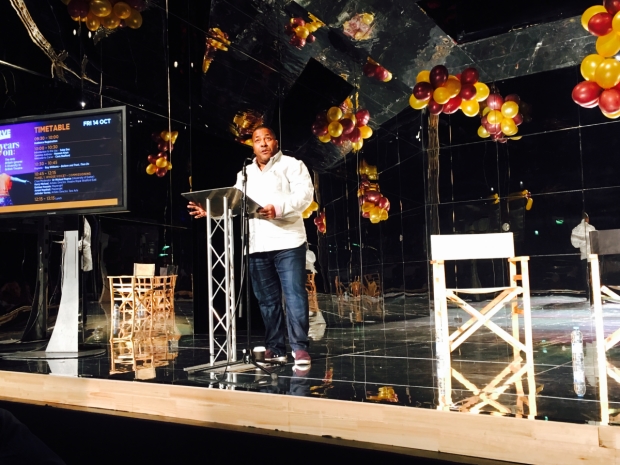Diversity in theatre: how far have we really come?
Daisy Bowie-Sell reports back from The Curve’s conference on diversity which looked at how far British theatre has come in the last 40 years

"A lot has changed but that doesn't mean we can be complacent." The words of Naseem Khan at the Leicester Curve last week, who, 40 years ago, put together a report on cultural work in ethnic minorities' communities entitled The Arts Britain Ignores.
Last week, as she opened the most recent conference on diversity in British theatre, she spoke to an audience of practitioners, funders, agents and writers – and journalists – who had gathered to focus on the issue of diversity on and beyond our stages.
Roy Williams' speech reminded us that being a black writer did not just mean working within specific parameters
It was an apt place to hold the conference. The Curve won the UK Theatre Award for the promotion of diversity last year and Leicester is home to the most diverse street in Britain. But it was playwright Roy Williams, with his excellent initial keynote speech entitled "Believe and Trust, Then Do" who really set the tone for the day ahead. Williams' speech reminded us that being a black writer did not just mean working within specific parameters.
"To be a black writer is one of the most liberating things that can be. I am black and I write about anything and everything I want to," he said. It sounds simple, and of course it is. But it was probably one of the most important statements to come out of the conference. A large part of tackling diversity is about breaking out of boxes. Recognising the groups we are put into for whatever reason, but then transcending and looking past them.
In the first panel, it was Jatinder Verma, artistic director of Tara Arts, who echoed Williams' point. "Being black or ethnic is a window onto the world, it is not a road back to some sort of ghetto," he said.
The intention behind the conference was to look at how far we had come since Khan's groundbreaking report. And the feelings on that were mixed. Artistic director of Theatre Royal Stratford East Kerry Michael said that when he first started working under Philip Hedley, he could easily keep track of the black artists working at the time. Now, he says, that's impossible, and a sure sign of movement forward.
Disappointingly, disability barely came up at all in discussions
But it was the panel on training and education that I found disheartening. Claudette Williams, lecturer at Central School of Speech and Drama, chaired the panel which featured Curve artistic director Nikolai Foster who pointed out that "pupils are being channelled into more 'academic' subjects". With the news that art history will no longer be an A-level, it is hard to disagree.
There were calls throughout the day to make boards, stages and audiences more diverse, although not a huge amount decided on the best way of going about achieving this. But it was Cassandra Chadderton, head of UK Theatre, who made one of the simplest and strongest cases for diversity: "It makes good business sense."
It was an invigorating, enlivening debate, although one which focused in the main on race and little on economic or physical diversity. In fact, disappointingly, disability barely came up at all in discussions. Perhaps that is a demonstration of how even the word 'diversity' can become restrictive by association and how far we still have to go.
Still, throughout the day I kept coming back to Williams' original speech. "Make diversity the absolute norm," he said. Ultimately, I agree wholeheartedly with what Chris Stafford, CEO at the Curve, said that day: "I look forward to a day when conferences around diversity are a thing of the past. But for now, let's keep the conversation going".












